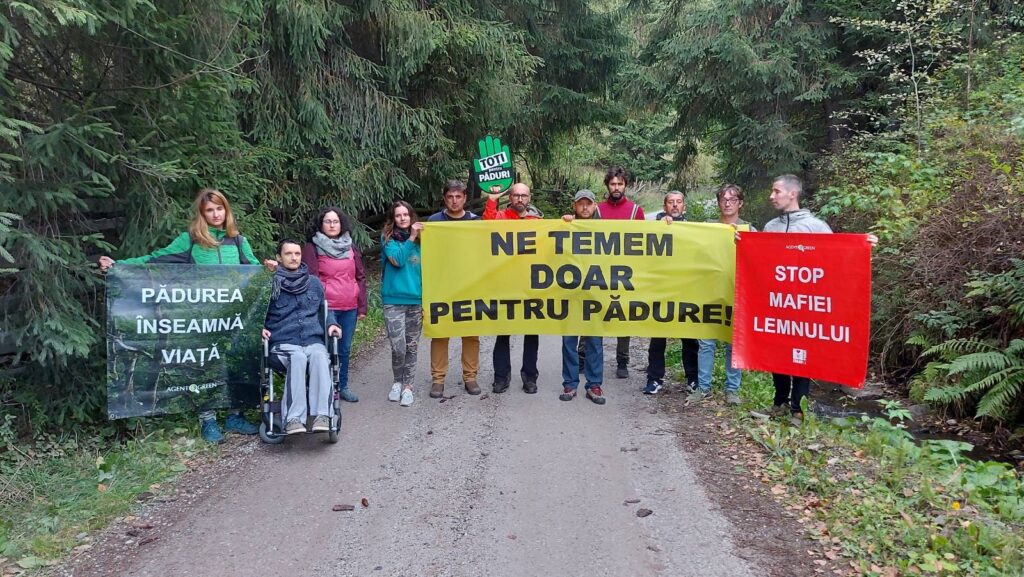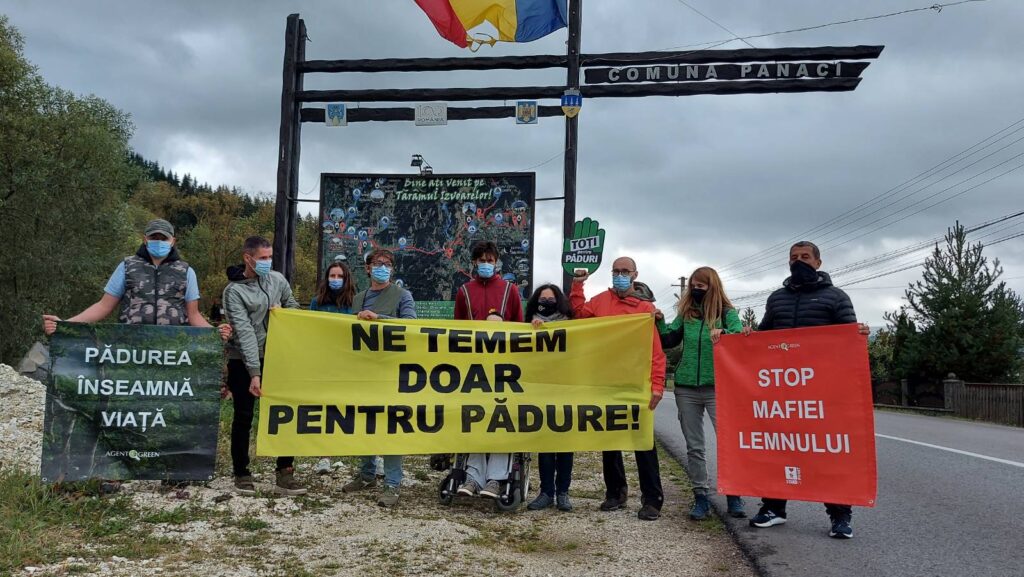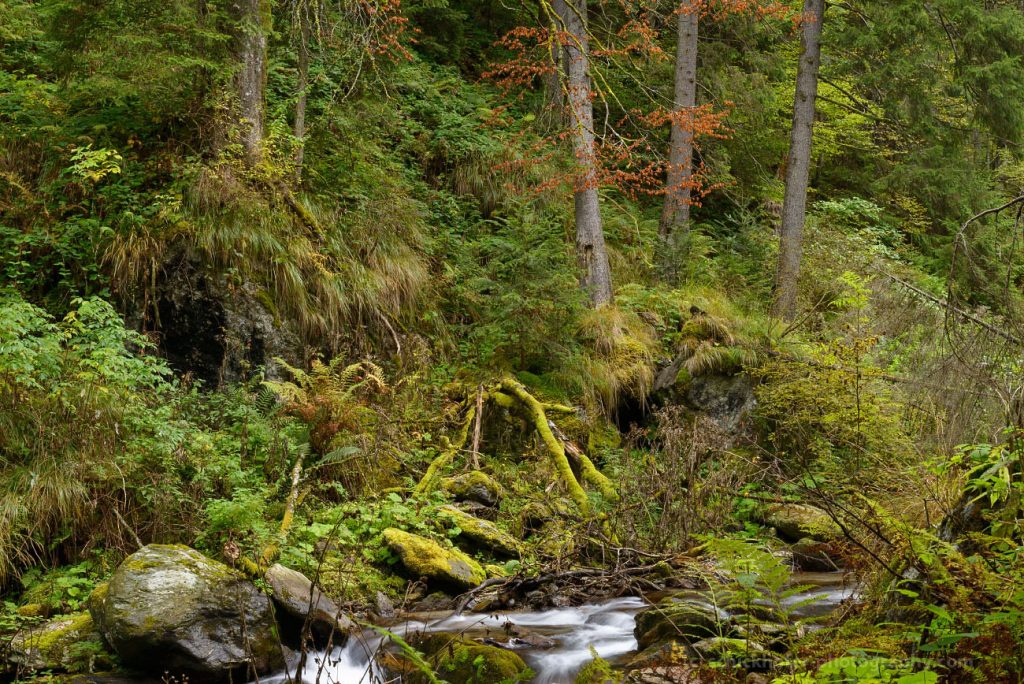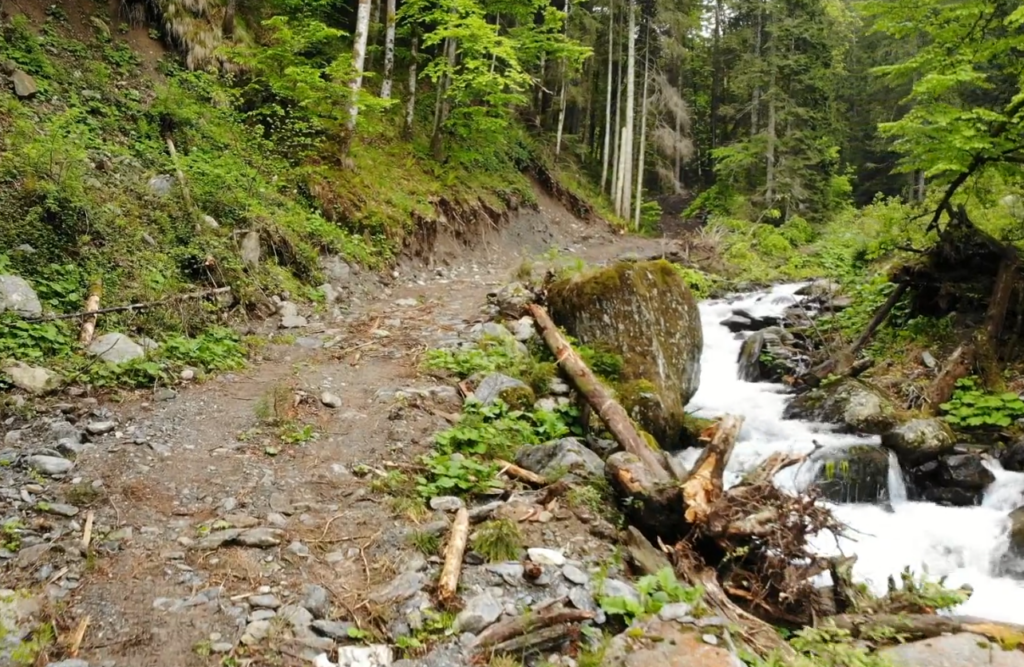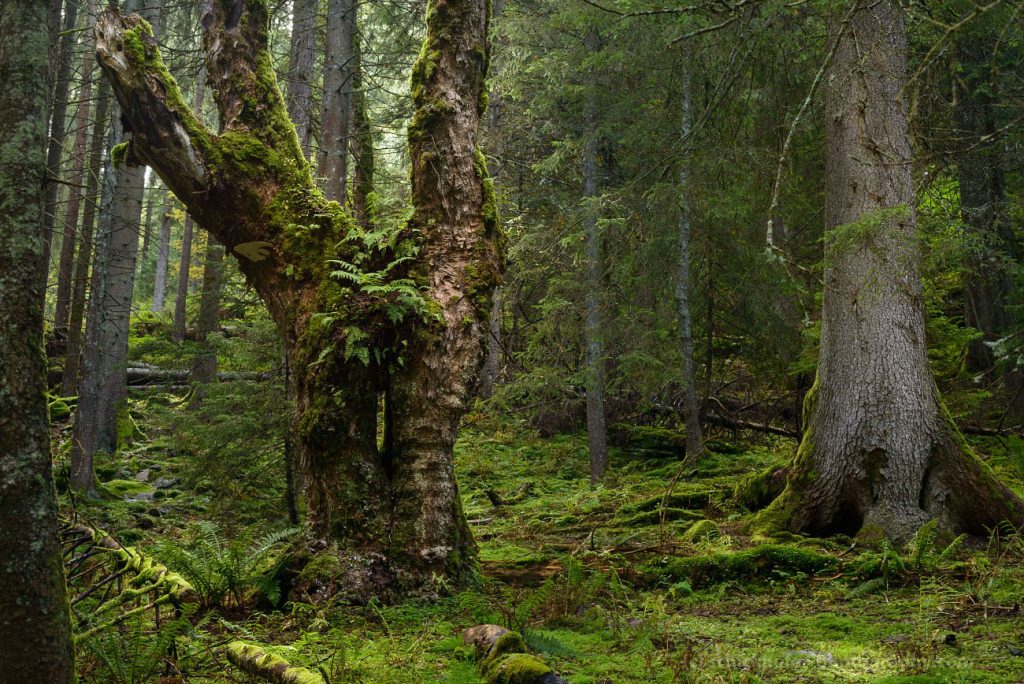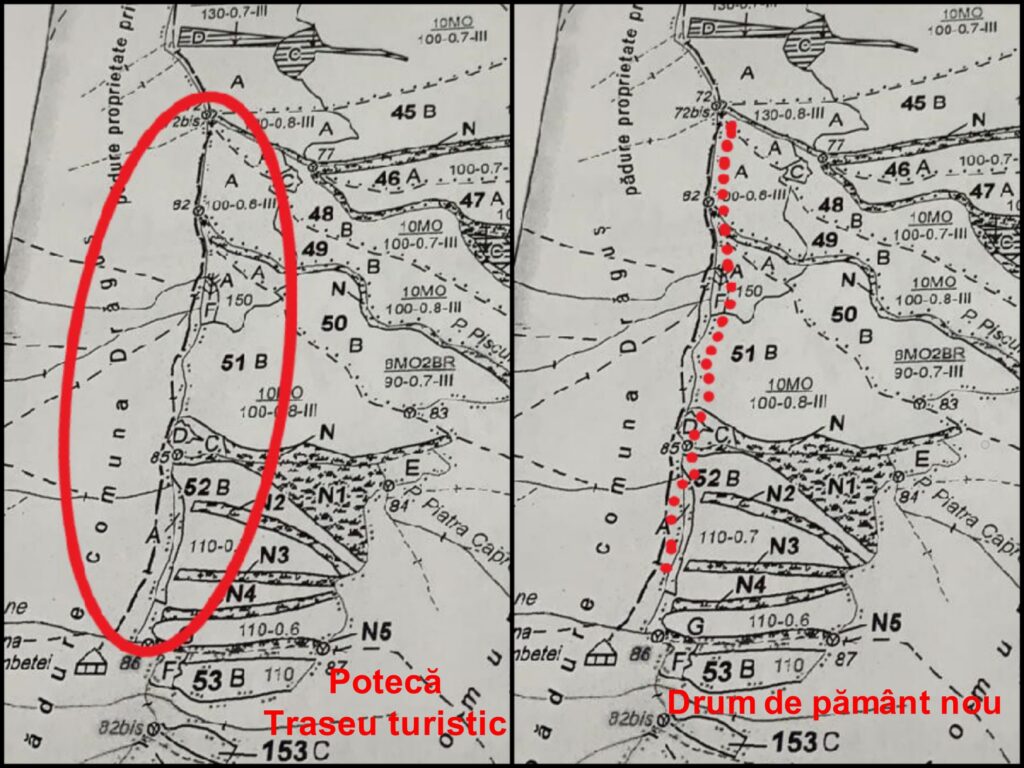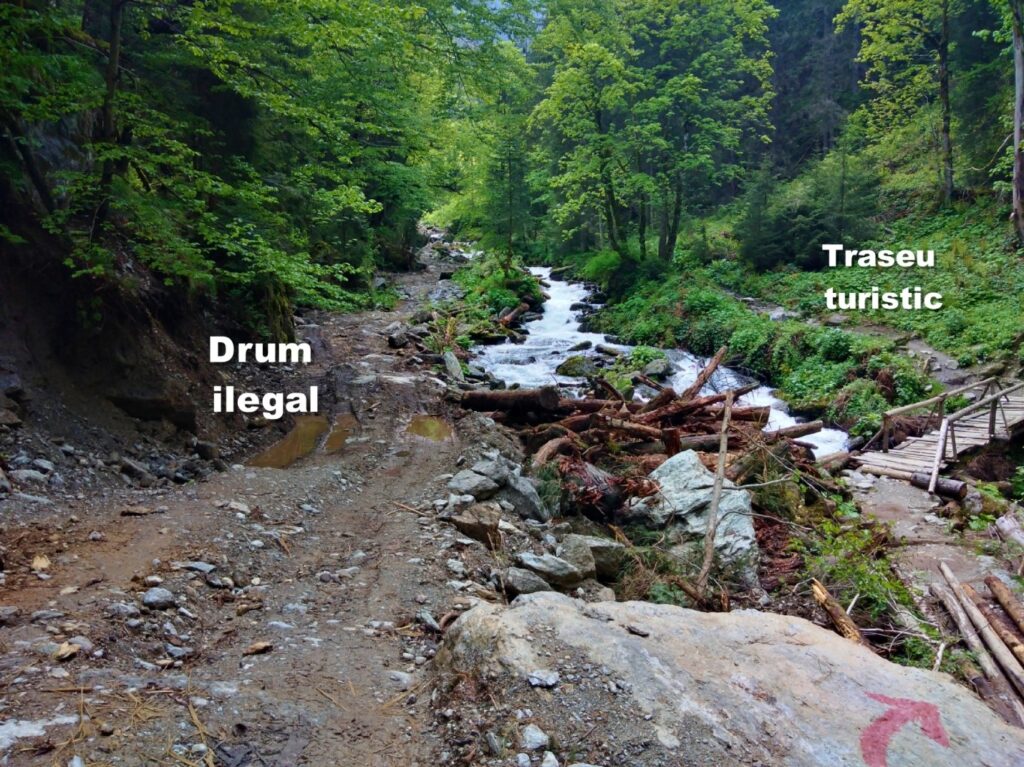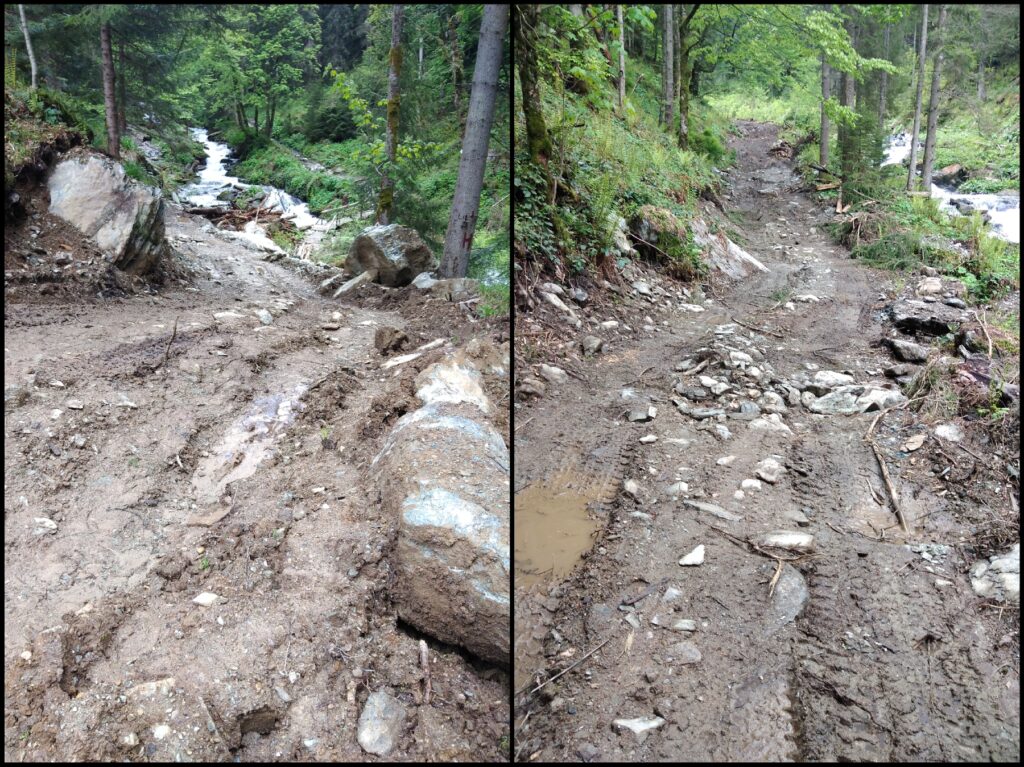A long list of leading non-governmental organizations from Romania and all across Europe sent a letter to the Romanian President Klaus Iohannis today expressing concern about the criminal developments in the Romanian forests and urging action to better protect these valuebale ecosystems. Only recently, two foresters were killed and there is evidence that illegal logging is being carried out in all parts of the country, even in old growth and primary forests and in EU protected areas.
The full letter, including all references and all 42 signatories, can be downloaded here as pdf: NGO letter condemning killing of forest defenders
This is the text of the letter:
To President Klaus Iohannis of Romania and the Government of Romania,
We, civil society colleagues in Romania, across Europe, and beyond, were shocked and dismayed to learn of the killing of Liviu Pop, a Romanian forest ranger who was out investigating illegal logging in Maramures, Romania, when he was shot dead. His death comes shortly after that of Raducu Gorcioaia, another forest ranger who was murdered in the forest district of Pascani earlier this month. Both are part of a long series of violence against forest rangers and activists.
These deaths, in any circumstances, are disturbing. Yet the fact that these individuals and many others have to put their personal safety on the line in order to defend Romania’s old-growth forests at a time when the importance of forests for climate action and biodiversity conservation is clear, and when forest protections are already included in Romanian law, is unforgivable. We condemn these killings in the strongest terms possible.
Romania’s forests are at threat, and forest protectors and policy-makers alike know this. Romania’s National Strategy and Action Plan on Biodiversity Conservation defines uncontrolled logging of natural forests as one of the major threats to ecological equilibrium in many mountain watersheds. According to JRC’s Wood Resource Balance Report to the EU, a concerning 43% of timber in Romania’s wood resource balance in 2015 came from unaccounted sources. Between 1990 and 2011, 366,000 hectares of forest was illegally logged, and in recent years there has been widespread logging even within ‘protected’ Natura 2000 sites. Furthermore, leaked data from the second National Forestry Inventory (IFN) show that between 2013 and 2018, logging exceeded the allowances in the approved forest management plans by about 20.6 million cubic metres of wood per year. These activities are fuelled by a criminal network which rewards a few at the top at the expense of those at the bottom, as well as at the expense of the country’s highly biodiverse forest ecosystems. This must end.
Not only are Romania’s forests an important element of national culture and natural heritage, but they can and should play a crucial role in Romania’s efforts to meet national and international climate commitments. There is a growing body of research that demonstrates that the protection and restoration of natural and old-growth forest carbon sinks, alongside a reduction in the use of fossil fuels, is a key element of sustainable climate action.
When reviewing Romania’s National Energy and Climate Plan (NECP), the European Commission stated that Romania has to “provide additional details on the specific measures to ensure sustainability for biomass supply and use in the energy sector.” Romania must take action to minimize the share of unaccounted sources in its wood resource balance, and should not be able to use solid biomass for energy whilst these environmental and socio-economic issues remain.
Furthermore, both the Romanian government and the European Commission must recognize that the protection of forests inside existing protected areas is a high priority which must be added to the Forestry section of Chapter 4.1. of Romania’s NECP, in order to mirror the commitments that Romania has already made to the Convention on Biological Diversity. Protected areas and old-growth forests must not be logged in order to increase the ‘renewable’ share of the country’s energy mix, especially when burning forest biomass is bad not only for ecosystems but also for the climate. We hope that Romania’s forthcoming National Forestry Accounting Plan will demonstrate how Romania will comply with EU land use and forestry regulation and protect its forests in its 2030 and 2050 plans. Forests are natural carbon sinks, water purifiers and homes for precious nature that must remain standing as a priority.
We call on Romania’s Presidency and incoming Government to publicly condemn the recent killings of Liviu Pop and Raducu Gorcioaia. A thorough and unbiased investigation must be carried out into both cases in order to identify those responsible and to bring them to justice. Steps must be taken to ensure that not only are those who work to defend forests and the environment provided with adequate legal protections, but that those protections are consistently enforced in practice. Furthermore, the Romanian Government must take concrete action to dismantle the Romanian ‘timber mafia’ network, and to strengthen and ensure compliance with legislation relating to forest protection and biomass sustainability.
Given the highly serious nature of this issue, we are coming to you directly with our appeal. We respectfully ask that you take the time to respond to this letter. We expect the Romanian Government and its representatives to move forward with concrete and effective actions to address the situation as soon as possible.
Romania must protect its forests and its forest protectors. If it cannot do that, how can it be sincere about its existing climate and biodiversity commitments?
Yours sincerely,
Gabriel Paun, Agent Green (Romania)
Mihai Stoica, Director, 2Celsius (Romania)
Fataï Aina, Executive Director, Amis de l’Afrique Francophone- Bénin (Benin)
Natasa Crnkovic, President, Friends of the Earth Bosnia and Herzegovina (Bosnia and Herzegovina)
Jasminko Mulaomerović, Head of Board, Center for Karst and Speleology, Sarajevo (Bosnia and Herzegovina)
Andrey Ralev, Member of the managing body, Balkani Wildlife Society (Bulgaria)
Michelle Connolly, Director, Conservation North, Prince George, B.C. (Canada)
Zdenek Postulka, Czech Coalition for Rivers (Czech Republic)
Martin Luiga, International Communications Coordinator, Eesti Metsa Abiks (Estonia)
Hannah Mowat, Campaigns Coordinator, Fern (EU)
Claude Braun, European Civic Forum (EU)
Sylvain Angerand, Campaign Coordinator, Association Canopée (France)
Frédéric Bedel, Le Syndicat national unifié des personnels des forêts et de l’espace naturel (France)
Gabriel Schwaderer, Executive Director EuroNatur Stiftung (Germany)
Jana Ballenthien, ROBIN WOOD (Germany)
Evelyn Schönheit & Jupp Trauth, Forum Ökologie & Papier (Germany)
Olaf Bandt, Executive Director, Friends of the Earth Germany (Germany)
Sylvia Hamberger, Gesellschaft für Ökologische Forschung (Germany)
Tilo Podstatny-Scharf, President, IYNF – International Young Naturefriends (Germany)
László Marasz, Koordination Dialogplattform Wald & Koordination AG Wälder, Forum Umwelt und Entwicklung (German Forum on Environment and Development) (Germany)
Wolfgang Kuhlmann, ARA (Germany)
Dr Sandra Altherr, Pro Wildlife (Germany)
Kenneth Nana Amoateng , Chief executive director, Abibiman Foundation (Ghana)
Vanda Altarelli, President, SONIA For a Just New World (Italy)
Kaisha Atakhanova, Director of regional program, NGO ARGO (Kazakhstan)
Jane L. Yap-eo, Asia Indigenous Peoples Network on Extractive Industries and Energy (Philippines)
Piotr Skubisz, on behalf of the Institute of Civil Affairs (Instytut Spraw Obywatelskich) (Poland)
Andrey Laletin, Friends of the Siberian Forests (Russia)
Juraj Lukáč, WOLF Forest Protection Movement (Slovakia)
Hemantha Withanage, Executive Director, Centre for Environmental Justice (Sri Lanka)
Julian Klein, spokesperson, Protect the Forest Sweden (Sweden)
Almuth Ernsting, Biofuelwatch (UK)
Steve Trent, Executive Director, Environmental Justice Foundation (UK)
Faith Doherty, Forests Campaign Leader, Environmental Investigation Agency (UK)
United Kingdom Youth Climate Coalition (UK)
Debbie Hammel, Deputy Director, Land Division, Natural Resources Defence Council (USA)
Mary S. Booth, PhD, Director, Partnership for Policy Integrity (PFPI) (USA)
Adam Collette, Program Director Dogwood Alliance (USA)
Cyril Kormos, Executive Director, Founder, Wild Heritage (USA)
Lucia Amorelli, Director and Campaign Organizer, Earthwise365 (USA)
Coraina de la Plaza, Global Forest Coalition (international)
Tim Cadman BA (Hons) MA (Cantab), PhD (Tasmania), Grad. Cert. Theol. (Charles Sturt), Research Fellow, Institute for Ethics, Governance and Law, Griffith University

